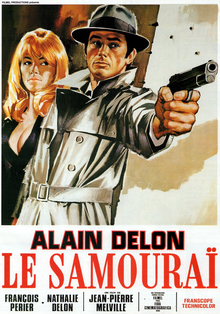A blog formerly known as Bookishness / By Charles Matthews
"Dazzled by so many and such marvelous inventions, the people of Macondo ... became indignant over the living images that the prosperous merchant Bruno Crespi projected in the theater with the lion-head ticket windows, for a character who had died and was buried in one film and for whose misfortune tears had been shed would reappear alive and transformed into an Arab in the next one. The audience, who had paid two cents apiece to share the difficulties of the actors, would not tolerate that outlandish fraud and they broke up the seats. The mayor, at the urging of Bruno Crespi, explained in a proclamation that the cinema was a machine of illusions that did not merit the emotional outbursts of the audience. With that discouraging explanation many ... decided not to return to the movies, considering that they already had too many troubles of their own to weep over the acted-out misfortunes of imaginary beings."--Gabriel García Márquez, One Hundred Years of Solitude
Wednesday, December 7, 2016
Le Samouraï (Jean-Pierre Melville, 1967)
Was anyone, even Jean-Paul Belmondo, ever as cool as Alain Delon is in Le Samouraï? It's not just that he's beautiful, for beauty often works against men in the movies: They get classified as "pretty boys" and stuck in roles in which they're shown up by the more rough-hewn types. It's not just that he shows no emotion, or hardly ever; that could easily be mistaken for "limited acting range." It's not just that he wears clothes -- trenchcoat and carefully placed hat -- elegantly. It's not just that he's playing the movies' most evocative loner, the hit man, whose monomaniacal pursuit of his mission invokes a bit of paranoia in us all. Or that, in its 1960s context, the film echoes the rage against order that stirred youth revolt around the world. Or that he evokes the detachment of existentialist heroes like Meursault in Camus' The Stranger. It's all of these things, of course, but mostly it's that Jean-Pierre Melville, in script (co-written with Georges Pellegrin) and direction, is able to create the perfect atmosphere -- part detective story, part American film noir hommage, part romanticism -- around the character of Jef Costello -- even the name, with its missing "f" and its evocation of the Italian-American mobster Frank Costello, has a certain weird glamour. (The Italian release was called Frank Costello faccia d'angelo, i.e., "Frank Costello Angel Face.") Delon is the perfect choice for the role, emphasizing the absurdity of the premise that someone so striking in appearance could go about his bloody work unnoticed. The absurdity is of course intentional on Melville's part, making mock of the glamorizing of violence. Similarly, the title mocks the glamorizing of violence in samurai films -- not so much those of Kurosawa and Kobayashi as the less-prestigious entries in the genre. The mockery is, however, not malicious but affectionate, and only comic in retrospect. I don't know many other films who unfold themselves so remarkably upon reflection.
Subscribe to:
Posts (Atom)
